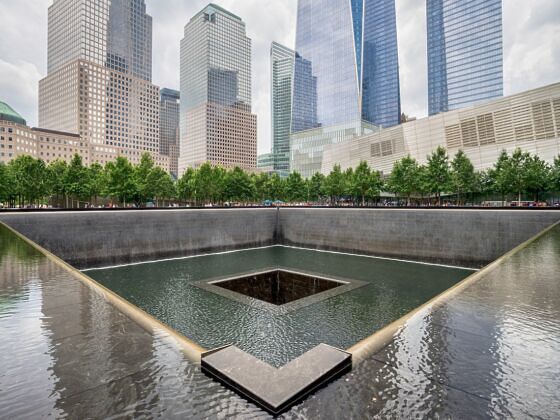THE REVIEWS ARE IN for New York’s latest tourist attraction: The 9/11 Memorial is a hit!
“Powerful as a punch to the gut,” says The New York Times.
“For the next generation and those that follow, this will be a museum and memorial that will last forever like the blood-soaked field in Gettysburg,” raves the New York Daily News.
At the new museum, visitors can watch a video of the 9/11 hijackers go through airport security, snap selfies in front of actual ruins of the fallen Twin Towers, and of course, buy souvenir t-shirts or silk scarves with images of the World Trade Center.
